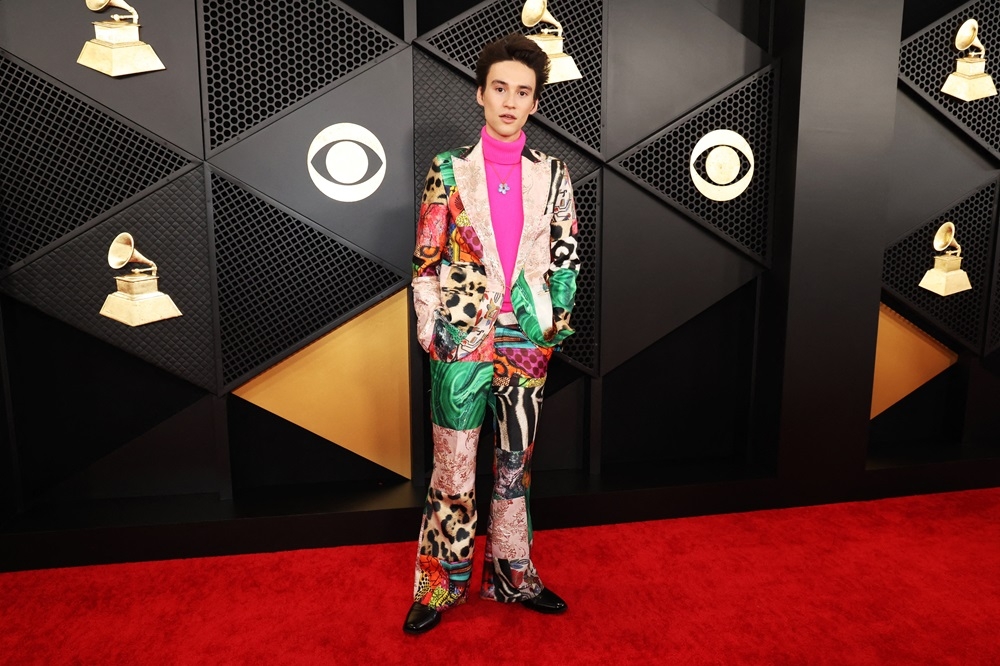MARCH 2 ― I can still remember the first time I heard Jacob Collier’s rendition of Moon River, also the first Collier song I had ever heard.
It felt like being thrown into a mystical pool where harmony, rhyme and melody swirl and surround your soul.
To this day I don’t know how Collier, who has won six Grammy Awards (including one at the recently concluded ceremony for his arrangement of In The Wee Small Hours of the Morning), does it.
He combines jazz with classical with modern with anything and everything.
It’s because of Collier that I first googled “micro-tonality”, essentially that step from F to F-sharp on the piano (for those in the know). Note that Collier also pushes the boundaries and works with notes NOT present on the keyboard (eg, those notes in between F and F sharp!)
This is a dude who can play every instrument and play it like some virtuoso; rumour has it he can even make music from pencils, shoes, bath-tubs, etc.
Collier frequently sings a particular sequence in about 20 (or perhaps 30!) different ways only to put them together, not unlike mum throwing a hundred ingredients into one dish.
In addition, he’s a genius when it comes to music tech and software; simply check out one of his “logic breakdowns” of one of his songs and what he does with his computer (I swear I can’t understand more than one per cent of what he’s saying and doing).
I’m sure you can read more about Collier’s rise to stardom online but here’s my two-sen version.

From what I’ve gleaned, Collier was this teenager experimenting with short music videos which displayed his re/harmonisations and re/combinations of popular songs.
He did this for a while before, bam(!), lightning struck. This is how he described it in one of his recent Instagram posts:
“I had just turned 19 ― fresh faced and on a mission to stretch my understanding of harmony to the edge of sane. I recorded every voice and instrument with a single SM58 microphone into Logic, and filmed everything on my sister’s iPad. I edited it together in an archaic Final Cut Express, which I figured out how to use watching YouTube tutorials. After a couple long weeks of work... it was done! I sat in the same room from which I write to you now, and sent the video up into the ether, not knowing what was to come of it.
“The response was beyond my wildest imagination. A few days later, I received an email from Quincy Jones that transformed my life, and shortly after that, an email from Herbie Hancock — which blasted my mind to smithereens.”
From that point, this emerging new modern Mozart cannot be stopped.
He released In My Room in 2016 which included two Grammy Award-winning songs, You and I and Flintstones.
Collier then began on a massive four-album project named Djesse (which sounds like his initials). His “crazy” arrangement of All Night Long (yes, that Lionel Ritchie classic) from Vol 1 and Moon River from Vol 2 won him Grammys.
What’s amazing is that the Djesse albums usually consist of more collaborated works than songs written and/or performed solo. It could be said that Collier is a true believer in working creatively with others and sharing his success.
Some of his more popular collaborators include Shawn Mendes and Stormzy (with whom he produced the Gospel-oriented Witness Me), Lizzy McAlpine and famed guitarist John Mayer (who both also performed Never Gonna Be Alone), John Legend and Tori Kelly (who just last month worked with Collier to release a beautifully mutated [!] version of Bridge Over Troubled Water) and many others.
And when I say “working with others” I don’t just mean other professional musicians. Collier is probably the only artiste who not only “directs” the choral performances by the audience during his concerts but also includes the (heavily edited and reharmonised) final product into his songs.
His slow haunting tune Little Blue includes portions from audiences singing in his world tour concerts.
Djesse, Volume 4
Last Friday, the final instalment of Collier’s gargantuan production just dropped, more than three and a half years after the third volume.
There are 16 tracks in the album, with seven having already been released prior (eg, Mi Corazón, WELLLL, Wherever I Go, etc.); the remaining never-before-heard tracks are wonderful.
I probably replayed Summer Rain (a collab with Madison Cunningham and Chris Thile and surely the most beautiful new ballad of 2024) 20 times that day; I also listened multiple times to A Rock Somewhere, a collaboration with Anoushka Shankar and Varijashree Venugopal (talk about East meets West).
Collier has noted that this final volume is a tribute to the human voice, and the track list certainly resonates with this. The first song, 100,000 Voices, is a versatile blend from a million vocal “situations” (including people talking); the final two (named Box of Stars Parts 1 and 2) sound like a group of people and choirs got together and jammed and sang and enjoyed themselves like experts on a break.
And listening to what Tori Kelly was coached by Collier to do with Bridge, you can bet this album celebrates (wo)mankind’s vocal chords like no other.
All in all, Djesse Volume 4 — like the best of music — is a welcomed break in the midst of a world so full of pain, frustration and tragedy. I guess my only regret in listening to this masterpiece is the knowledge that Collier will not be producing a fifth Djesse anytime soon.
* This is the personal opinion of the columnist.






















